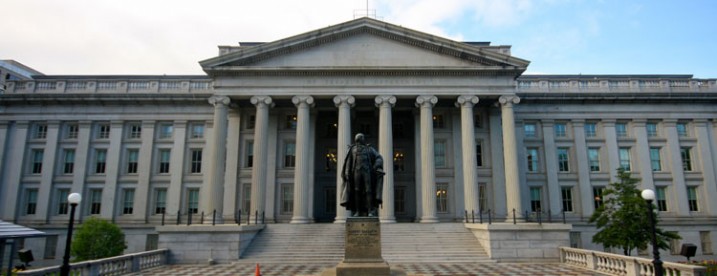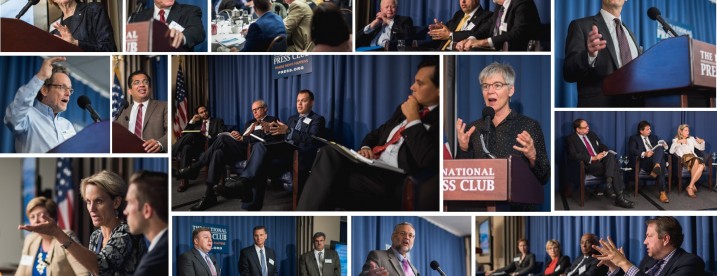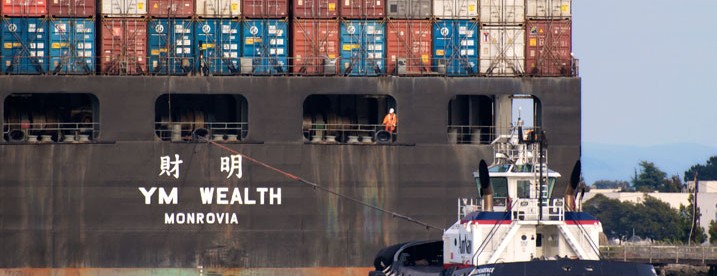By Heather Lowe, February 8, 2018

Yesterday’s announcement of a guilty plea by Rabobank NA with corresponding penalty and forfeiture of $369 million did not immediately strike people as new or surprising. In fact, the pattern of anti-money laundering/Bank Secrecy Act (AML/BSA) violations...

H.R. 4519, the proposed repeal of Section 1504 of the Dodd-Frank Act, also known as the Cardin-Luger Anti-corruption law, Faces Mark-up Tomorrow
On December 11, 2017, Global Financial Integrity sent a letter to Chairman Jeb Hensarling and Ranking Member Maxine Waters of the House Financial Services Committee urging the Committee to vote “NO” on H.R. 4519, which would repeal a crucial bi-partisan anti-corruption law known from Section 1504 of the Dodd-Frank Act. Section 1504 helps the U.S. government combat corruption in the oil, gas and mining sectors globally.
“Today, neither legislators nor investors have any reliable information about multinationals’ profit shifting practices apart from the result of them—less revenue in the U.S. treasury and greater risk of enforcement actions worth billions of dollars,” commented Heather Lowe, Legal Counsel and Director of Government Affairs at Global Financial Integrity.
Today the U.S. Treasury and the Internal Revenue Service (IRS) published a rule, which will become final tomorrow, requiring the U.S. parent company of large, public and privately held multinational companies to provide certain financial data to the IRS on a country-by-country basis. The information is meant to provide tax authorities with better tools to identify where a company might be artificially shifting profits into tax havens—a red flag for tax evasion and tax avoidance that may warrant further investigation.

GFI Calls on Congress to Take Action to Ensure that Beneficial Owners are Actually Identified at the Time of Company Formation
The U.S. Departments of Treasury and Justice announced a raft of measures and proposals to address critical vulnerabilities in the U.S. financial system on May 5th, following actions taken by other countries in response to the Panama Papers disclosures. GFI welcomes the introduction of these measures after a four year process but urges Treasury and Justice to fix serious gaps in the requirements for identifying the beneficial owners of companies.
Global Financial Integrity (GFI) and over 100 other members of the Financial Accountability and Corporate Transparency (FACT) Coalition have submitted a letter to the U.S. Department of the Treasury (Treasury) and to the Internal Revenue Service (IRS) urging them to maintain and strengthen a proposed rule on Country-by-Country Reporting that would bring much needed transparency to how U.S.-based companies book profits and pay taxes in many of the countries in which they have subsidiaries. The proposed rule is meant to give the IRS and, potentially, foreign tax authorities, a window into how multinational companies may be gaming the international tax system and avoiding taxation in the U.S. and other countries. Today is the final day to submit public comments to Treasury and the IRS on the proposed rulemaking.
By Tom Cardamone, October 6, 2015

A Quarterly Newsletter on the Work of Global Financial Integrity from June to September 2015
Global Financial Integrity is pleased to present
GFI Engages, a quarterly newsletter created to highlight events at GFI and in the world of illicit financial flows. We look forward to keeping you updated on our research, advocacy, high level engagement, and media presence. The following items represent just a fraction of what GFI has been up to since March, so make sure to check our
website for frequent updates.
Global Financial Integrity Conference: Illicit Financial Flows: The Most Damaging Economic Problem Facing the Developing World
Based on the culmination of work GFI has done with the support of the Ford Foundation including a book by GFI, the conference included discussions and keynote remarks from experts on the nature of IFFs, country-level perspectives, and how and why curtailing these IFFs should be a priority for the global community.
By Heather Lowe, July 22, 2015

Law Firm Focuses Attention on Practice Illicitly Draining Over US$700 Billion per Year from Developing and Emerging Economies
While much of GFI’s focus is on improving the capacities of customs departments, it is unfortunately rare for us to find American law firms writing articles on customs issues applicable to our work. Attorneys at the global law firm of White & Case have recently published one worth reading, however.
The authors are noting the increase of U.S. enforcement in the customs area, and most of the cases cited involve trade misinvoicing/fraud, a practice which accounts for about 80 percent of GFI’s illicit financial flows estimates—illegally draining US$730 billion from developing and emerging economies in 2012.





